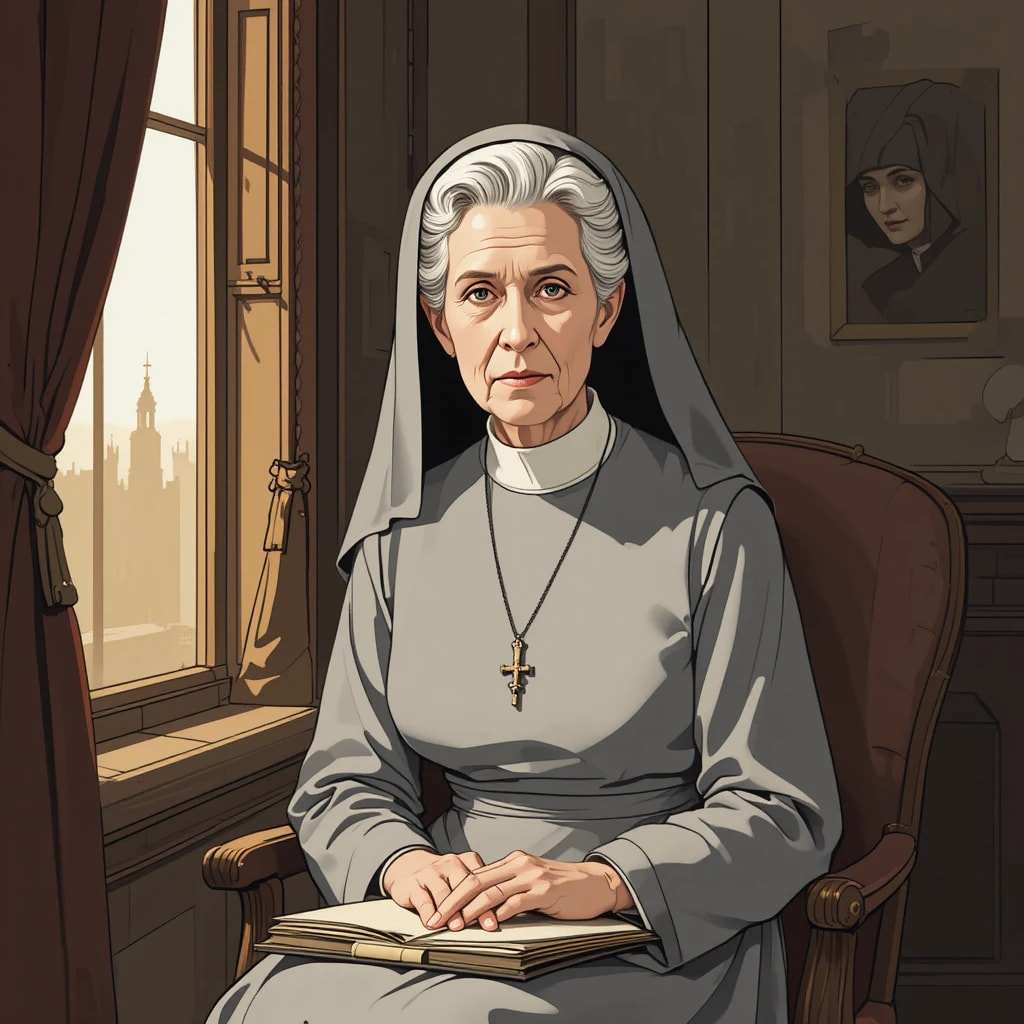While the world often associates the British royal family with pomp and scandal, the life of Princess Alice of Battenberg — Prince Philip’s mother — tells a far more human and heroic story. Royal author Hugo Vickers, in his re-released biography Alice, brings to life a woman whose selfless service, profound faith, and resilience remain awe-inspiring in 2025.
Originally published in 2000, Alice has found renewed popularity thanks in part to public curiosity sparked by her portrayal in The Crown, albeit an inaccurate one. Vickers himself dismisses the dramatization of her as a reclusive, ghostly figure “locked in a room” in Buckingham Palace. The truth, he says, is far more compelling and dignified — and grounded in historical fact.
—
A Royal Life Shaped by War, Loss, and Service
Princess Alice was born into European nobility but lived much of her life in turmoil. She experienced World War I as a teenager, fled from Greece with her husband and children during political upheaval, and later endured personal and psychological crises that culminated in her institutionalization.
But even during her darkest moments, her story never veers into victimhood. According to Vickers, Alice had a “religious crisis,” not a breakdown in the conventional sense. Despite being sent away to a clinic — a common response for royals dealing with psychological issues at the time — she emerged stronger, having found purpose in spiritual service.
Most remarkably, she never had to return to that clinic. Her correspondence with her doctor revealed deep insight and introspection. She was far more than a troubled aristocrat; she was a deeply thinking, feeling woman caught between worlds.
—
A True Wartime Heroine
During the Nazi occupation of Greece, Alice performed an act of unparalleled bravery — hiding a Jewish family, the Cohens, in her home. As Vickers explains, her deafness served her well: when German soldiers questioned her, she simply feigned misunderstanding. She never spoke publicly about her actions. She considered them her duty, not something worthy of praise.
For this courage, she was posthumously honored by Yad Vashem as one of the “Righteous Among the Nations,” a title given to non-Jews who risked their lives to save Jews during the Holocaust. Prince Philip, when accepting the award, simply said: “She would have thought it was the right thing to do.”
—
Faith, Identity, and the Habit
Though Princess Alice is often described as a nun, she technically wasn’t — at least not in the traditional Catholic sense. She did, however, form a nursing order modeled after her family’s tradition of royal service. Dressing in religious habits allowed her order to gain respect and protection, particularly in conservative Greek society.
Her decision to live in simplicity — after a youth full of tiaras and ballrooms — wasn’t a retreat but a redirection. Her faith grounded her, and her service to others defined her. According to Vickers, she smoked, played cards, and maintained her wit until the end. “What can you say about a nun who smokes and plays canasta?” her own mother once joked.
—
A Son’s Quiet Admiration
Prince Philip rarely discussed his mother publicly. As Vickers recounts, their relationship was complex. After being separated from her at a young age, Philip went years without even a birthday card. Still, when Vickers presented his manuscript to Philip, the Duke of Edinburgh reviewed it in full. Though never praising it directly, he reportedly told others he “learned more about his mother from that book than in real life.”
That endorsement — silent but powerful — speaks volumes. Philip was shaped by a childhood of instability and personal loss. Understanding Alice is, in many ways, essential to understanding Philip himself.
—
A Legacy Reclaimed
Queen Elizabeth II, too, respected Alice deeply. From 1967 until her death in 1969, Alice lived at Buckingham Palace under the Queen’s care. The Queen often dined with her privately. Prince William, in recent years, has embraced her memory, even referencing her in a Holocaust memorial speech.
Her legacy, long overshadowed by louder royal figures, has found new life — thanks to both her descendants and authors like Hugo Vickers. As Vickers shared in a recent interview, he was initially unsure whether anyone would care about a biography of Princess Alice. Now, 25 years after its original release, Alice is a top-seller once again.
—
Conclusion
Princess Alice’s life is a reminder that true greatness isn’t always flashy. It doesn’t parade itself on red carpets or trend on social media. Sometimes, true courage lives in the quiet — in service, sacrifice, and standing firm in the face of evil.
Her story isn’t just a footnote in royal history. It’s a blueprint for how personal pain can be transformed into powerful service. For anyone tired of royal drama and hungry for authentic inspiration, Alice delivers — page after page.
